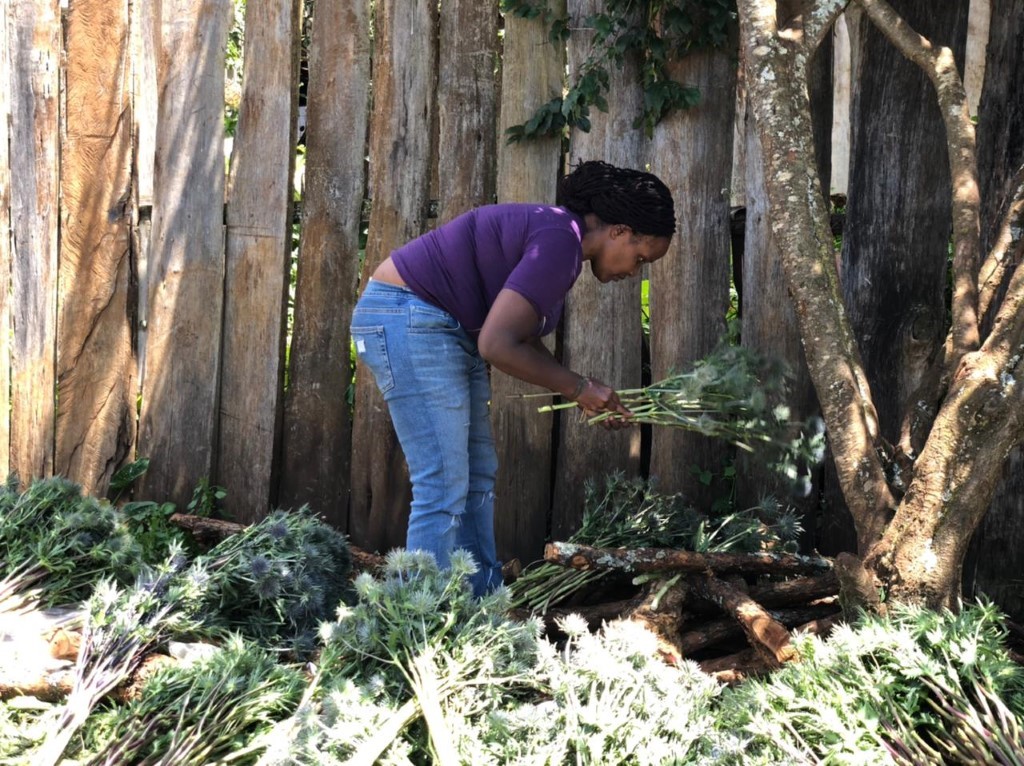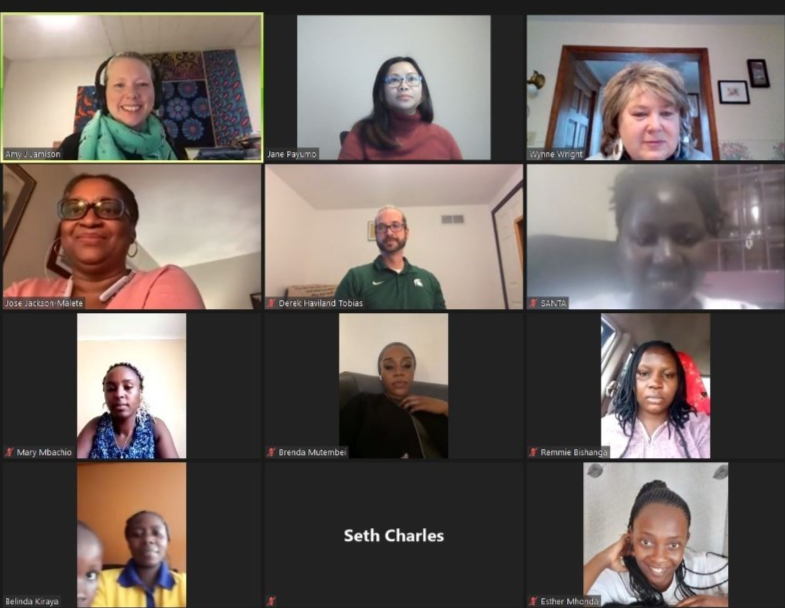The Alliance for African Partnership, together with in-country partners, has concluded training its fourth cohort of fellows brought together through the US Department of State Bureau of Education and Cultural Affairs (ECA)-funded Professional Fellows Program (PFP). AAP has implemented this program through the PFP since 2017 in order to address challenges faced by women in agri-business in Tanzania, Uganda, and Kenya.
This year, the program supported 12 emerging, East African leaders who built their own action plans around improving female innovation and entrepreneurship within their communities. By participating in online seminars, dialogues, and professional development sessions, the fellows have increased their professional capacity to make a real-world impact.
PFP facilitates partnerships among Michigan State University, Kyambogo University in Uganda, the University of Nairobi in Kenya, and Sokoine University of Agriculture in Tanzania in order to identify and support the fellows. Building bridges internationally, through initiatives such as PFP, can have a direct impact on nuanced global challenges. In Tanzania, PFP country coordinator, Prof. John Jeckoniah, affirms that “the program is having a direct positive impact on local communities. The fellows’ network has also been a significant resource for our graduates and young entrepreneurs linked to Sokoine.” The PFP is providing solutions to low female economic engagement within East African agribusiness.
Kathy Mbondo, current fellow from Kenya, points to the importance of addressing female innovation, stating, “women have been sidelined and ostracized a lot especially when it comes to value chain or value addition on projects that matter and earn money. It is very important to uplift women so that they have jobs that pay- not just in farm harvesting but I want to see women higher up in the value chain.”

While the share of women’s labor in African agriculture is estimated to be on average 50%, African women continue to face challenges in accessing finance and markets, land ownership and tenure, and shouldering the load of community and family care responsibilities. This demonstrates that women play a significant but often underacknowledged and undercompensated role in agribusiness. Specifically, the role of women along agricultural value and supply chains tends to be concentrated in high-labor, low-profit areas.
By increasing female capacity along the value chain, there can be an array of additional benefits including higher supply chain stability, increased yield and product quality, and the creation of newer, better markets. Outside of production, an increase in female entrepreneurship can help combat food insecurity and low-income levels within Africa.
Esther Mhonda, current fellow from Tanzania, recognizes women as agents of change stating, “Innovation for women in agriculture or agri-business is important because if women have the capacity to be innovative in agriculture, it will not only be beneficial to them but also to the communities they live in. Speaking for the case of Tanzania, where I live, women are also responsible to take care of children and most participate in community issues. If we expand women innovation, not only will the women prosper but also the innovation would affect the community around them.”
While the current PFP cohort is just 12 fellows, they are likely to have a significant reach throughout East Africa. The fellows are critical ‘enablers of growth’ within their communities. This means that their individual projects are expected to generate more ideas, development, and possible commercialization of agri-business among a larger population. Their projects cover a multitude of agri-business opportunities including animal/poultry production, integrated crop and livestock production, honey production, and financial literacy workshops.

This year, PFP implementation was directly impacted by COVID-19 which prevented fellows from participating an in-person exchange. Traditionally, fellows would be brought to Michigan for four weeks to engage with community partners and then attend a three-day capstone event in Washington, DC. Instead, this year fellows Zoomed from their home countries to attend virtual workshops and trainings.
Derek Tobias, program manager, recognizes the positive and negative effects of the online program stating, “The best thing about the program is the relationships that develop over five weeks in the U.S. That was definitely the biggest thing missed in the virtual experience. However, one of the great unexpected benefits of holding the program online was the opportunity to provide content from our East African partners and alumni, which we had not done before.”
Despite challenges, the fellows were able to engage successfully within the program and present their projects. AAP will continue its engagement with PFP alumni into the future in order to support ongoing progress with fellows, alumni, and partnerships. To stay engaged with their work and progress, please connect with AAP on social media!